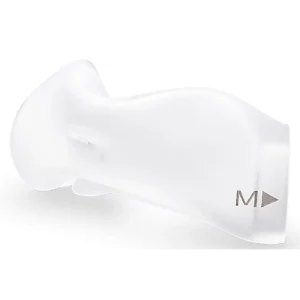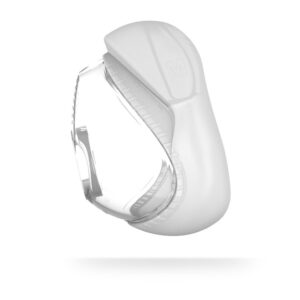Sleep is a crucial aspect of well-being, influencing everything from physical health to mental clarity. However, if you’re reading this, it’s likely you’ve been diagnosed with sleep apnea, and you or your loved ones may have questions.
In this blog post, we delve into the world of sleep apnea, exploring what it is, its symptoms, risk factors, and available treatments, including CPAP devices.
What is Sleep Apnea?
Sleep apnea is a sleep disorder characterized by repeated interruptions in breathing during sleep. These pauses, called apneas, can last for a few seconds to minutes and occur multiple times throughout the night. The two main types of sleep apnea are obstructive sleep apnea and central sleep apnea.
Obstructive Sleep Apnea
This is the most common form of sleep apnea. It results from the relaxation of throat muscles, leading to a temporary blockage of a person’s airway, the crucial path air flows through to get to the lungs. When the airway is blocked it leads to decreased oxygen levels in the blood and stress on the body.
Central Sleep Apnea
In this less common form of sleep apnea, the brain fails to send the correct signals to the muscles responsible for controlling breathing.
Identifying Sleep Apnea
Recognizing the signs of sleep apnea is essential for getting help before a person’s health is negatively affected. Common symptoms of sleep apnea include:
-
Loud Snoring
While not everyone who snores has sleep apnea, persistent loud snoring can be a significant warning sign.
-
Pauses in Breathing
Witnesses, often a sleep partner, may notice periods where a person’s breathing stops or becomes irregular during sleep.
-
Daytime Sleepiness
Excessive daytime fatigue, even after a full night’s sleep, is a classic symptom of disrupted sleep patterns.
-
Morning Headaches
Waking up with frequent headaches can be a consequence of decreased oxygen levels as a result of sleep apnea.
Risk Factors for Sleep Apnea
Certain things increase the likelihood of developing sleep apnea. These include:
Age and Gender:
Sleep apnea is more common in older adults and males.
Weight:
Excess weight, especially around the neck, increases the risk of developing sleep apnea.
Family History:
A family history of sleep apnea may make some individuals more likely to develop the condition.
Medical Conditions:
Pre-existing health conditions like high blood pressure, diabetes, and nasal congestion can contribute to the onset of sleep apnea.
Long-Term Effects of Sleep Apnea
Untreated sleep apnea can lead to serious health problems, including:
- Heart issues such as high blood pressure, stroke, heart attacks, and irregular heartbeat.
- Metabolic conditions such as Diabetes
- Mental health conditions such as depression, anxiety, impulsiveness, and trouble focusing or making decisions.
Because of the serious long-term health problems that result from sleep apnea, getting proper diagnosis and treatment is important.
Diagnosis of Sleep Apnea
Diagnosis of sleep apnea usually involves a sleep study, either at a sleep center or using an at-home device. If you have already had a sleep study and are looking for quality CPAP supplies to help you sleep better, congratulations on beginning your journey back to good health and a good night’s rest!
Sleep Apnea Treatment Options
Treatment options for sleep apnea vary, with the most common being:
Continuous Positive Airway Pressure (CPAP)
A CPAP machine delivers a continuous stream of air to keep the airway open during sleep. This is most likely what your doctor has prescribed for you.
A CPAP machine on its own can make a huge difference in your sleep quality and health, however your doctor may also recommend lifestyle changes, or in rare cases, surgery on the nose, throat and/or mouth area to reduce or remove airway blockages.
Lifestyle Changes
Weight management, positional therapy, and avoiding alcohol and sedatives can help support a patient to improve their sleep.
Surgical Interventions
In severe cases, surgery may be considered to treat a blocked airway.
Sleep apnea is a common sleep disorder with far-reaching consequences. If you’ve been diagnosed with sleep apnea, we’re here to support your sleep health and your road to recovery.
Check out our extensive collection of quality CPAP machines and CPAP equipment for sale in our store. We’re here to help you get a better night’s sleep!


